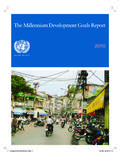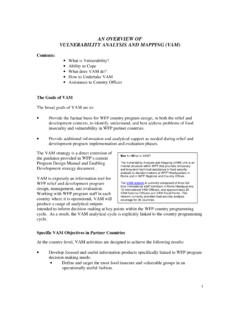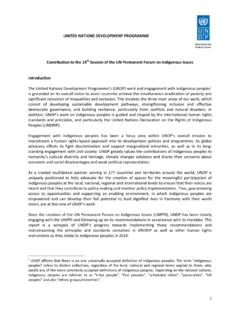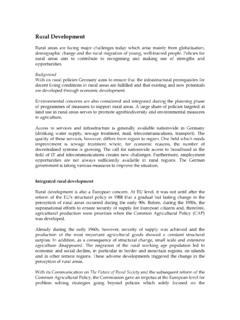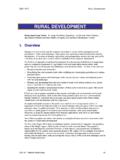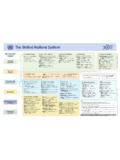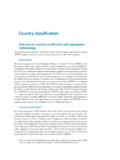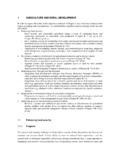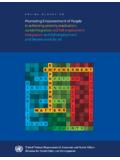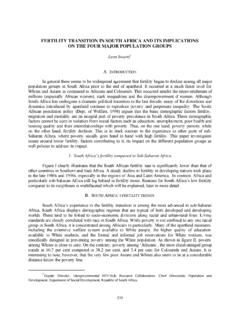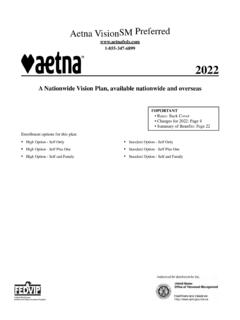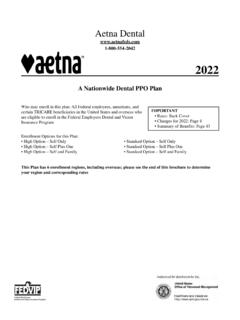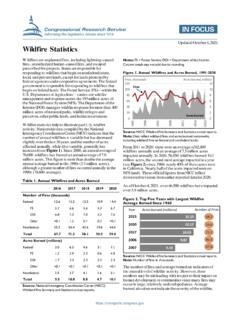Transcription of COVID-19 and Human Rights - United Nations
1 COVID-19 and Human RightsWe are all in this togetherAPRIL 2020 They put people at the centre and produce better outcomesHuman Rights are key in shaping the pandemic response, both for the public health emergency and the broader impact on people s lives and livelihoods. Human Rights put people centre-stage. Responses that are shaped by and respect Human Rights result in better outcomes in beating the pandemic, ensuring healthcare for everyone and preserving Human dignity. But they also focus our attention on who is suffering most, why, and what can be done about it. They prepare the ground now for emerging from this crisis with more equitable and sustainable societies, development and peace. Why are Human Rights so important to the COVID-19 response?The world is facing an unprecedented crisis. At its core is a global public health emer-gency on a scale not seen for a century, requiring a global response with far-reaching consequences for our economic, social and political lives.
2 The priority is to save view of the exceptional situation and to pre-serve life , countries have no choice but to adopt extraordinary measures. Extensive lockdowns, adopted to slow transmission of the virus, restrict by necessity freedom of movement and, in the process, freedom to enjoy many other Human Rights . Such measures can inadvertently affect people s livelihoods and security, their access to health care (not only for COVID-19 ), to food, water and sanitation, work, education as well as to leisure. Measures need to be taken to mitigate any such unintended consequences. The United Nations has available a powerful set of tools, in the form of Human Rights , that equip States and whole societies to respond to threats and crises in a way that puts people at the centre. Observing the crisis and its impact through a Human Rights lens puts a focus on how it is affecting people on the ground, partic-ularly the most vulnerable among us, and what can be done about it now, and in the long term.
3 Although this paper presents recommenda-tions, it is worth underlining that Human Rights are obligations which States must abide Human Rights for everyone poses a challenge for every country around the world to a differing degree. The public health crisis is fast becoming an economic and social crisis and a protection and Human Rights crisis rolled into one. In some, ongoing crises, especially armed conflict, put Human Rights and other international legal protections under extra pressure. The COVID-19 crisis has exacerbated the vulnerability of the least protected in society. It is highlight-ing deep economic and social inequalities and inadequate health and social protection systems that require urgent attention as part of the pub-lic health response. Women and men, children, youth and older persons, refugees and migrants, the poor, people with disabilities, persons in Human Rights are critical for the response and the recovery2 COVID-19 AND Human Rights : WE ARE ALL IN THIS TOGETHERCOVID-19 AND Human Rights : WE ARE ALL IN THIS TOGETHER 3 detention, minorities, LGBTI people, among oth-ers, are all being affected differently.
4 We have an obligation to ensure everyone is protected and included in the response to this authorities are having to deploy maximum resources to combat the spread of the disease and protect lives. Decisions are being made at speed and, even though well-intended, some can inad-vertently have adverse consequences. Responses must be proportionate to the pandemic to preserve the trust that needs to exist between people and their government, especially during a crisis. Human Rights guide States on how to exercise their power so that it is used for the benefit of the people and not to do harm. In the current crisis, Human Rights can help States to recalibrate their response measures to maximize their effective-ness in combating the disease and minimise the negative consequences. The centrality of pro-tection, which underpins the response in Human -itarian settings, ensures that we collectively preserve our common humanity and Rights law recognizes that national emergencies may require limits to be placed on the exercise of certain Human Rights .
5 The scale and severity of COVID-19 reaches a level where restrictions are justified on public health grounds. Nothing in this paper seeks to tie the hands of States in shaping an effective response to the pandemic. Rather it aims to signal to States possible pitfalls in the response to the crisis and to suggest ways in which attention to Human Rights can shape better responses. The aim is threefold: to strengthen the effec-tiveness of the response to the immediate global health threat; mitigate the broader impact of the crisis on people s lives; and avoid creating new or exacerbating exist-ing problems. All three elements will posi-tion us to build back better for a backdrop of rising ethno-national-ism, populism, authoritarianism and pushback against Human Rights in some countries, the crisis can provide a pretext to adopt repressive measures for purposes unrelated to the pan-demic.
6 The instability and fear that the pandemic engenders is exacerbating existing Human Rights concerns, such as discrimination against certain groups, hate speech, xenophobia, attacks and forced returns of refugees and asylum-seekers, mistreatment of migrants, and sexual and gen-der-based violence, as well as limited access to sexual and reproductive health and Rights . This is not a time to neglect Human Rights ; it is a time when, more than ever, Human Rights are needed to navigate this crisis in a way that will allow us, as soon as possible, to focus again on achieving equitable sustain-able development and sustaining peace. In his recent Call to Action for Human Rights to put Human Rights at the heart of UN actions, including in times of crisis, the Secretary-General underlined that:our shared Human condition and values must be a source of unity, not division.
7 We must give people hope and a vision of what the future can hold. The Human Rights system helps us to meet the challenges, opportunities and needs of the 21st century; to reconstruct relations between people and leaders; and to achieve the global stability, solidarity, pluralism and inclusion on which we all depend. It points to the ways in which we can transform hope into concrete action with real impact on people s lives. It must never be a pretext for power or politics; it is above both .This paper aims to translate this Call into concrete action to assist with the response to the pandemic. It presents six key messages that must be central to an effective response to the COVID-19 pandemic. 1 The Highest Aspiration: A Call to Action for Human RightsSPOTLIGHT: Human Rights AT THE FRONTLINE IN THE FIGHT AGAINST COVID-19 Three Rights are at the frontline in the current pandemic: Right to life and duty to protect lifeWe are combating COVID-19 to protect the lives of all Human beings.
8 Invoking the right to life reminds us that all States have a duty to protect Human life , including by address-ing the general conditions in society that give rise to direct threats to life . States are making extraordinary efforts to do this, and it must remain the primary right to health and access to health careThe right to health is inherent to the right to life . COVID-19 is testing to the limit States abil-ity to protect the right to health. Every Human being is entitled to the enjoyment of the high-est attainable standard of health conducive to living a life in dignity. Everyone, regardless of their social or economic status, should have access to the health care they need. Historic underinvestment in health systems has weakened the ability to respond to this pandemic as well as provide other essential health ser-vices. COVID-19 is showing that universal health coverage (UHC) must become an imperative.
9 Those States with strong and resilient health-care systems are better equipped to respond to crises. Health-care systems all around the world are being stretched, with some at risk of col-lapse. UHC promotes strong and resilient health systems, reaching those who are vulnerable and promoting pandemic preparedness and preven-tion. SDG 3 includes a target of achieving , affordable health-care systems assist with combating the pandemic by ensuring access for everyone, without discrimination, to basic measures that contain the spread of the virus. This includes testing, specialist care for the most vulnerable, intensive care for those in need and vaccination, when avail-able, regardless of ability to pay. In response to the pandemic, some countries have extended health cover to everyone in their country; oth-ers have reached agreements with private sector health-care providers to make their facilities available to the pandemic central challenge to freedom of movementControlling the virus, and protecting the right to life , means breaking the chain of infection: people must stop moving and interacting with each other.
10 The most common public health measure taken by States against COVID-19 has been restricting freedom of movement: the lock-down or stay-at-home instruction. This measure is a practical and necessary method to stop virus transmission, prevent health-care services becoming overwhelmed, and thus save lives. However, the impact of lockdowns on jobs, liveli-hoods, access to services, including health care, food, water, education and social services, safety at home, adequate standards of living and family life can be severe. As the world is discovering, freedom of movement is a crucial right that facilitates the enjoyment of many other Rights . While international law permits certain restric-tions on freedom of movement, including for reasons of security and national emergency like health emergencies, restrictions on free movement should be strictly necessary for that purpose, proportionate and non-dis-criminatory.
